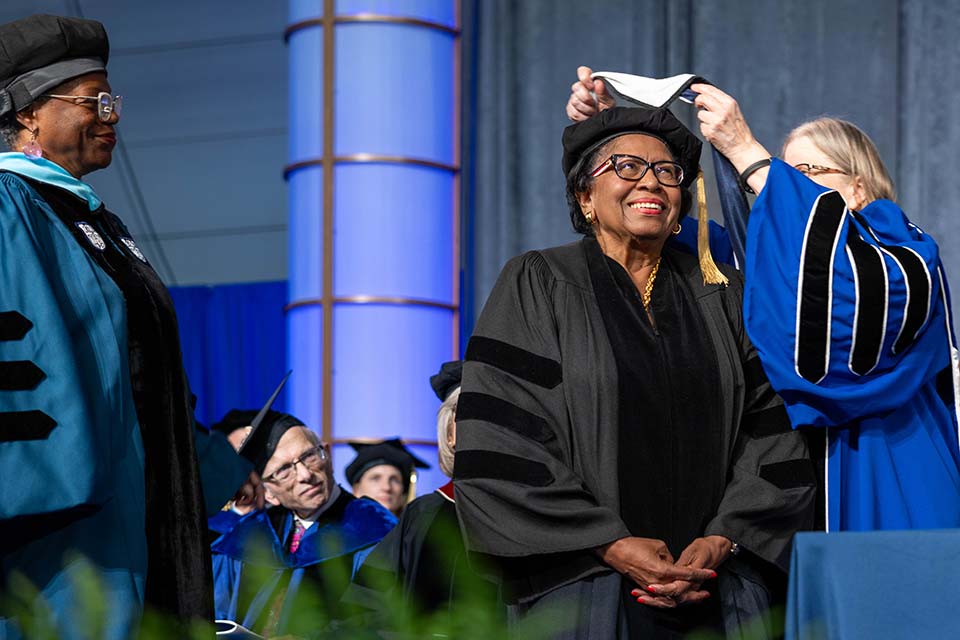Honorary Degrees: A Short History

Honorary degrees appear to have arisen out of the practice of granting dispensations from certain particular academic requirements.
European universities began granting degrees “for the sake of the honor” (honoris causa) in the 15th century, and the first such degree was awarded at Oxford University in 1478 or 1479 to Lionel Woodville, Dean of Exeter, the brother-in-law of Edward IV and the future Bishop of Salisbury. These were essentially academic peerages, entitling the recipient to full privileges in the university, privileges that were much more extensive than now. At the same time universities conferred degrees on certain scholars whose career achievements warranted such recognition.
The first honorary degree awarded in America was an honorary doctor of divinity degree conferred by Harvard University in 1692 on its president, Increase Mather.
Recipients of an honorary doctorate do not normally adopt the title of “doctor.” In many countries, including the United Kingdom, Australia, New Zealand and the United States, it is not usual for an honorary doctor to use the formal title of “doctor,” regardless of the background circumstances for the award. An early and notable exception is Benjamin Franklin, who received an honorary doctorate from the University of St. Andrews in 1759 and the University of Oxford in 1762 for his scientific accomplishments, and thereafter referred to himself as “Doctor Franklin.”
Brandeis University, which awarded its first honorary degrees at its second commencement on June 14, 1953, bestows honorary degrees as a means to acknowledge the singular accomplishments or contributions of individual men and women; to identify the University with the values expressed through the work and accomplishments of the honoree; to draw attention to the University as an institution that respects and encourages such values and the manner in which those values are expressed; and to emphasize its own institutional mission and purposes.
The University honors individuals for distinctive achievement in the creative and performing arts, humanities, social sciences, sciences, public service, philanthropy, business, the learned professions, social justice, Jewish life, international understanding and human rights.